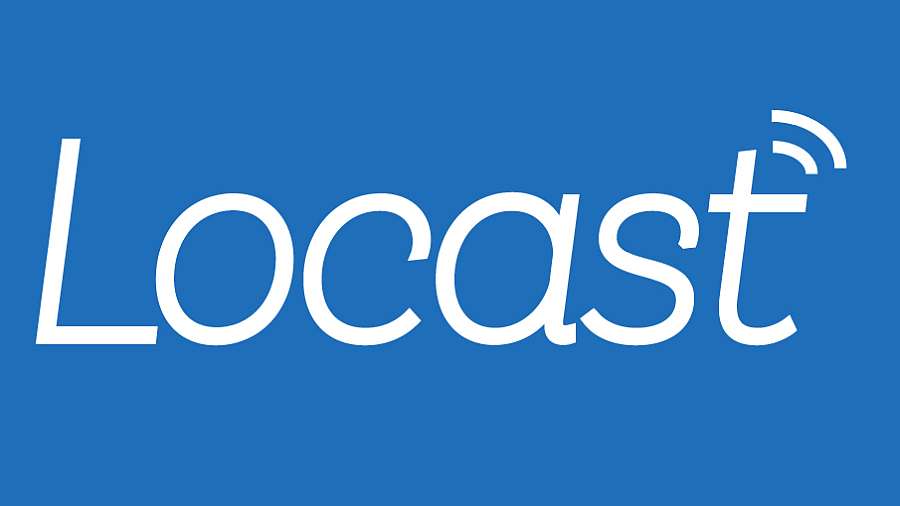Nonprofit Launches NY TV Station Streaming Service

The smarter way to stay on top of broadcasting and cable industry. Sign up below
You are now subscribed
Your newsletter sign-up was successful
The nonprofit Sports Fans Coalition is launching locast.org, a broadcast TV station over-the-top streaming service in New York, the nation's top market, but without the knowledge or consent of, or compensation to, the 13 TV stations, including stations owned by the Big Four networks, whose signals it is delivering free to fixed and mobile broadband devices.

The launch is timed so that this weekend's big NFL playoff games will be available free, over-the-top, via locast.org. That, and the fact that ABC, CBS, NBC and Fox all own stations in the market, will almost certainly draw the attention, and likely ire, of both the league and broadcasters, who are protective of access to their high-value sports content.
The coalition, which set up a New York chapter to establish the necessary non-profit profile in the market, does not need the stations' permission or to pay retransmission fees says coalition chairman David Goodfriend a veteran Democratic government affairs pro and former Dish exec.
Goodfriend and the newly-launching locast.org ( a contraction of "local" and "broadcast") are relying on Title 17, Chapter 1, section 111 a)5 of the Copyright Act, which for those without a copy handy covers exemptions from exclusive rights to broadcast transmissions. It grants that exemption if "the secondary transmission is not made by a cable system but is made by a governmental body, or other nonprofit organization, without any purpose of direct or indirect commercial advantage, and without charge to the recipients of the secondary transmission other than assessments necessary to defray the actual and reasonable costs of maintaining and operating the secondary transmission service."
That is the same provision under which TV translators already boost broadcast signals, Goodfriend points out, saying it should not matter what the technology is. They are a nonprofit taking a broadcast signal and retransmitting it, period, he says.
The key is the nonprofit status, which Goodfriend says his coalition clearly has. Armed with that statute, Goodfriend is rolling out the service, with plans to expand it to other markets if the model passes legal muster. "We're going to give it a shot and we're going to get sued," he conceded.
If broadcasters or sports leagues balk, he will have to demonstrate that he is a nonprofit and gets no direct commercial advantage from the retransmissions, and that the statute indeed allows for retransmissions over the top in addition to over the air.
The service is geofenced, which means it will not be available outside the New York DMA and thus does not run into contractual exclusivity issues, though the statute does not necessarily confine broadcasts to in-market retransmission, Goodfriend says, though he is not looking to test that theory just yet.
"All this does is take the nonprofit structure reflected in that statue and do the same thing that a translator does, but doing it over the internet and making sure the signal is only available in New York DMA. Broadcasters are supposed to make it [their signal] available to everybody for free. You can stick an antenna out the window or you can stream on locast.org. They both have the same effect."
He says the importance of having a nonprofit do it is that for-profits push up prices and restrict accessibility.
Goodfriend says that locast.org will seek donations to cover payments to defray its actual and reasonable costs, in this case a content delivery network (CDN) to stream the content.
While he says he sought financial support from some of his clients, which include Google, Dish, and The Weather Channel, there were no takers. Goodfriend says that is because they are not sure whether it hurts or helps them. Google, for example, is paying "top dollar to broadcasters to do exactly this," he says. "I'm not sure they will like it if somebody is out there giving it away."
Goodfriend did say he is getting some initial startup funding from an unnamed "high net worth individual."
What is the end game of a free service providing content broadcasters already provide, including online. By definition it is not to make money.
Goodfriend said his point is that nonprofits and public interest groups are being "drowned out" by consolidated media companies.
"Having a nonprofit delivering signals for no or low cost over the internet is just bringing the public service mission of broadcasting into the 21st Century."
Goodfriend is hardly the first to wade into the issue of who can rebroadcast TV station signals, and how.
Aereo tried to sidestep retrans with an online TV station delivery service, but crashed and burned thanks to court decisions that did not go its way (Goodfriend said he reached out to Aereo funder Barry Diller but got not reply). FilmOn did not crash and burn, but ran into its own court roadblocks trying to retransmit TV station signals over the top.
Telletopia claimed the same nonprofit status as the Sports Fan Coalition is invoking to try and launch its TV station delivery service, also using geofencing technology. It was unable to gain traction either and shuttered not long ago.
The National Association of Broadcasters was putting the Locast effort in that same category.
"Over the years, numerous services from Aereo to FilmOn have tried to find creative ways to skirt the communications and copyright laws that protect local broadcasters and our tens of millions of viewers," said NAB spokesman Dennis Wharton. "Without more details, this effort by the Sports Fan Coalition sounds like the latest such effort. We are deeply skeptical that this service will survive legal scrutiny where its predecessors have failed.”
Related: Streaming Service Telletopia Packs It In
Goodfriend points out he has a long history of fighting broadcasters and the NFL and says he is ready for a court fight if need be.
"We've got an excellent outside law firm that has worked in the online video copyright space," he says. "They gave me some pretty strong advice that the statute contemplates this kind of thing. Taking a broadcast signal within the market and boosting it so that everyone can see it. It is just that no court has ever addressed whether the language of that statute applies only to over the air or to other technologies."
The Sports Fans Coalition is an advocacy group focused on public access to sports content, sports rights, stadium financing deals, and other issues. It also successfully advocated for ending the FCC's 'Sports Blackout Rules'.
The smarter way to stay on top of broadcasting and cable industry. Sign up below
Contributing editor John Eggerton has been an editor and/or writer on media regulation, legislation and policy for over four decades, including covering the FCC, FTC, Congress, the major media trade associations, and the federal courts. In addition to Multichannel News and Broadcasting + Cable, his work has appeared in Radio World, TV Technology, TV Fax, This Week in Consumer Electronics, Variety and the Encyclopedia Britannica.

